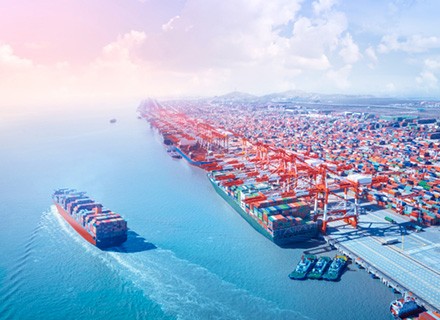A new centre for the trafficking of Russian crude oil has emerged in Ceuta, a tiny Spanish outpost near the northernmost tip of Africa. As shippers scramble to rearrange trade channels in response to European Union sanctions and a price restriction that went into effect on December 5, the city under Spanish administration is becoming a gateway to keep Russian oil flowing.
As the European Union became less reliant on Russian oil delivered by pipeline, trade moved to the sea.
Russia has already moved its maritime trade operations to the middle of the North Atlantic after being rejected from its former ship-to-ship transfer centre off Denmark’s Skaw.
However, heavy winter swells and choppy tides rendered it too chaotic to pour crude oil from one ship to another. So instead, the Mediterranean waters around Ceuta are calm, and Vortexa, a company that tracks Russian tankers, says that fleets of Aframax tankers carrying crude oil from Russian ports on the Black Sea arrive at Ceuta and transfer their cargo to Very Large Crude Carriers (VLCCs). The VLCCs then continue the 40-day trip to China by looping below the Cape of Good Hope.
Six VLCCs have been anchored outside of Ceuta since December 2022, and at least three of these vessels are Chinese-owned, according to Vortexa statistics.
Ship-to-ship transfers are now taking place in the waters off the Greek city of Kalamata, with most of the oil going to India via the Suez Canal. To avoid the ship going aground in the shallow waters of the Suez Canal, VLCCs transiting through the canal are only permitted to be half filled.
Russian ship-to-ship transfers had never before been observed off the shores of Ceuta or Kalamata, and the uptick in activity coincided with an increase in Russian oil exports.
Despite A Decline, Russia Continues To Export Crude Oil
The European Union sanctions were designed to impede Russia’s invasion of Ukraine by squeezing out Moscow’s energy revenue, together with a USD 60 price restriction on Russian oil. Even though the European Union has been importing less Russian petroleum since the months following the invasion, China, India, Turkey, and other nations have stepped in to increase supplies.
Since December 5, reported volumes of Russian oil on ships have fluctuated, reaching a new low at the end of that month. However, the volume changes have been influenced by scheduled port maintenance and other infrastructure concerns almost as much as the effects of the sanctions.
Russian oil exports by ship are currently above 500,000 metric tonnes per day, up from 2021, according to the Centre for Energy Research and Clean Air (CREA), a research organisation with headquarters in Finland that monitors the effects of the sanctions on Russian oil. According to CREA data, Russia received EUR425 million on January 23, 2023 from oil exports, a 28% fall from the EUR593 million it made on February 24, 2022.
The European Union started debating whether to raise sanctions against Russia and decrease the price cap on its oil on January 27. While a group of nations led by Estonia, Lithuania, and Poland are advocating for a price cap of USD 40 to USD 50 per barrel, below the average market price of Russian oil, which was USD 54 in December 2022 and USD 52 in January 2023. The US is pressing to preserve the price cap at USD 60 per barrel.
Imports of refined oil from Russia into the EU are currently planned to be prohibited, pending the results of the February 5 negotiations.

